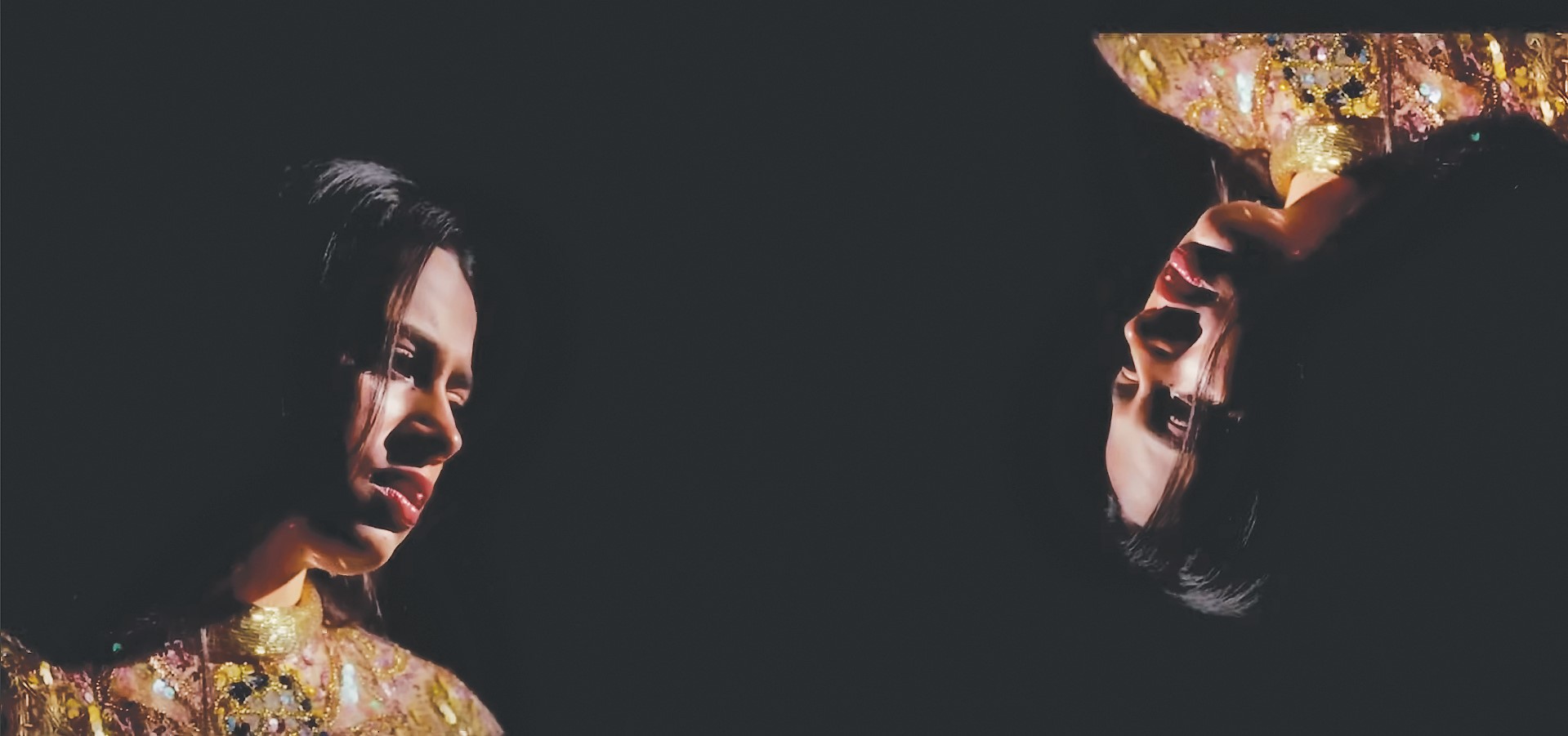Entertainment
‘Fashion is an integral part of musical performances’
Singer and fashion enthusiast Rachana Dahal has a voice that is both raw and enticing. She likes to complement her dressing with her performances.
Rishika Dhakal
Cladded in a glittery blue mermaid dress, Rachana Dahal graces the stage of Rastriya Naach Ghar and her troupe of performers. The performer’s emotive performance does exactly the job that Dahal ardently wishes to showcase in her every show—captivate the audience by evoking a deep emotional connection through her music and stage presence.
Dahal released her first music video, ‘Bhumari’, in 2019. Before that, she often sang off the cuff. “Growing up, my brother and I shared a room where we would listen to songs and sing duets. This is my core memory of falling in love with music,” she shares. Recalling her childhood, Dahal says all she ever wanted to do was find a stage and sing into a microphone.
Today, she is known as a musician with an unconventional, raw and unique voice. “It's my style to sing with a raw voice. That’s how my true self comes out,” she says.
As someone who considers music a form of catharsis, Dahal habitually relies on it to release her pent-up emotions. “Just like when someone screams, it releases all their pent-up emotions, in the same way, performing, moving, jumping, releases all the bad energies inside me,” she says.
Her recent release ‘Ma Sakdina’ features her collaboration with guitarist Bijay Maximus. One of Dahal’s band members, Suyash Singh, committed suicide a few years ago. He had created a specific riff to be used in their upcoming music.
“My collaboration with Bijay Maximus on the song ‘Ma Sakdina’ is solely to utilise the riff created by Suyash and to cherish his memory,” says Dahal.
Fascinated by pure Nepali language, Dahal ensures her lyrics remain free from any linguistic admixture.
“While collaborating, one of the expectations I have from my partner is that they incorporate Nepali language into the lyrics”.
Fashion is an integral part of her musical performances, among the many elements that add richness to them. As a fashion enthusiast, she believes that fashion complements the mood of her performances by reflecting her personality on stage.
Dahal says fashion has always played a key role in helping the audience understand her music. By using her style and appearance, she aims to captivate listeners, regardless of their musical background or understanding.
“I even change my dress during performances. There's a lighter side and a heavier side. I prefer flowy, sweet colours on the lighter side and black and dark colours on the heavier side,” she says.
Talking about writing music and what keeps her going, she says, “Writing songs is like breathing for me. You cannot say no to breathing.” However, she admits that she never had a full-fledged plan to make music videos.

When asked if she takes inspiration from anyone, she states that idolising someone would prevent her from creating something original and authentic. She adds, “After idolising someone, you tend to follow what has already been done and your mind struggles to come up with something original and authentic. I receive inspiration from a diverse array of people. For me, not having an idol is a blessing in disguise.”
After the release of her first music video, ‘Bhumari’, the country went into lockdown, confining her to the four walls of her room.
“Lockdown made it difficult for me to try new things. Taking the first step to release my music video was challenging. After much contemplation and battling with my thoughts, I finally took that step, and then the lockdown happened,” Dahal reflects.
Similar to the quote, “No journey is without its trials,” Dahal’s journey has been fraught with challenges and adversities. “Creating a music video on one's own is very expensive. With limited but valuable support from my well-wishers, I was able to do it,” she says.
Analysing the music scenario in Nepal is disheartening, especially regarding support for artists. “It is difficult to even receive sponsorships from organisations to sustain in this industry,” laments Dahal.
She adds that public figures can easily attract sponsors as their fame grows, leading to monetary support. However, for budding artists like her, securing sponsorship has been a challenge.
For Dahal, the struggle to stay afloat in the music industry has always been with the organising committees. The widespread tokenism these committees practise, where female artists are included in events just to fill a quota rather than being genuinely valued for their talent, reflects a superficial approach to gender inclusion.
She is here to change that, “I want to be recognised through my own hard work and talent rather than through any form of tokenistic inclusion,” she says.
“I want to push Nirvikalpo, my organisation, to new heights. Through Nirvikalpo, I want to perform”.
For the time being, Dahal simply wants to be happy and feel content with her life’s path, while working on her new album.




 15.87°C Kathmandu
15.87°C Kathmandu










